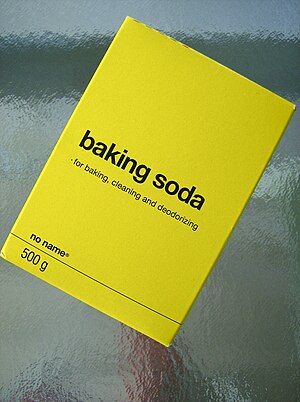With the growing awareness of "green" issues all over the world, the idea of organic gardening is really gaining traction. Using more natural methods of planting, growing, and harvesting, using fewer (or no) chemicals, getting away from the monopolistic mass production of food that tends to make it both tasteless and vulnerable – people are becoming more and more interested in "eating organic."
|
|
| Syromastes rhombeus (Photo credit: Wikipedia) |
But one thing that makes potential organic gardeners uneasy is a simple problem that every food grower encounters: bugs. What if your garden gets infested with insects or other pests that could harm all those plants you so lovingly set out? You're not supposed to use pesticides if you're growing organically, so what can you do? Do you have to settle for damaged flowers, fruit, and vegetables? Do you have to reconcile to losing some of your plants altogether?
No you don't. There are other ways to deal with garden pests, when they need dealing with.
And that's one of the keys: "
when they need dealing with." Because you'll probably have to do some research, when you encounter some new bug or little worm, to find out if it's really a "pest" at all. So that's actually your first step: try to identify the bug, either on the internet or by trapping one and taking it to a garden center. If it's good for the soil or the plants, you probably don't need to do anything at all.
But let's back up a few steps. One way to prevent pests is to
prepare the garden properly in advance, and keep it tidy and clean afterward. If you're composting ahead of time, don't use plant material that you already know had a disease or bug problem. Clean up dead material before you plant anything, and be sure the soil is well aerated and fertile. When you do put in your plants, place them in the conditions in which they grow best. If they are meant to grow in full sun, or shade, or part-shade, then put them in that sort of location. Keep the garden clean as the season progresses, by throwing away dead leaves, deadheading the flowers, and weeding.
Try to attract animals or insects that will help keep down other unwanted insects. You can draw birds in by placing bird houses or feeders. Bug-fighting insects, like ladybugs, or certain types of wasps, can be attracted if you grow plants that they use for food. Do some research to see what other sorts of insect predators you can bring into the garden.
Watering properly is another means of keeping the bug population down. Water less frequently, but more deeply. Frequent shallow watering creates a humid atmosphere around the plant, which is the sort of condition in which many insects thrive. It also creates the right circumstances for fungus and rot to develop.
If you do get some small bugs, try spraying a simple soap solution: 40 parts water and one part non-detergent soap, such as Ivory. Spray the bottoms of a few leaves first, to make sure it will work on specific plants. If it seems to work without damaging the plant, you should be good to go. This can eliminate many fairly ordinary pests.
One suggested solution for fighting several fungal diseases is a baking soda spray that consists of a mixture of one quart of water, one teaspoon of baking soda, and one squirt of liquid, non-detergent soap. This would be sprayed on affected leaves and stems. Or a potato starch spray, substituting 2-4 teaspoons of potato flour for the baking soda, may help deter insects as well as fighting fungus.
Become familiar with local organic gardeners or associations, and explore some of the other options out there. In extreme cases, there are existing organic products that can often help, though you'll want to research those too, to make sure they are reputable. As you switch away from pesticides and other chemicals, you will find that it's possible to have a pretty healthy and happy garden without them, using more organically appropriate methods of pest control instead.
Organic Pest Control Resources:










